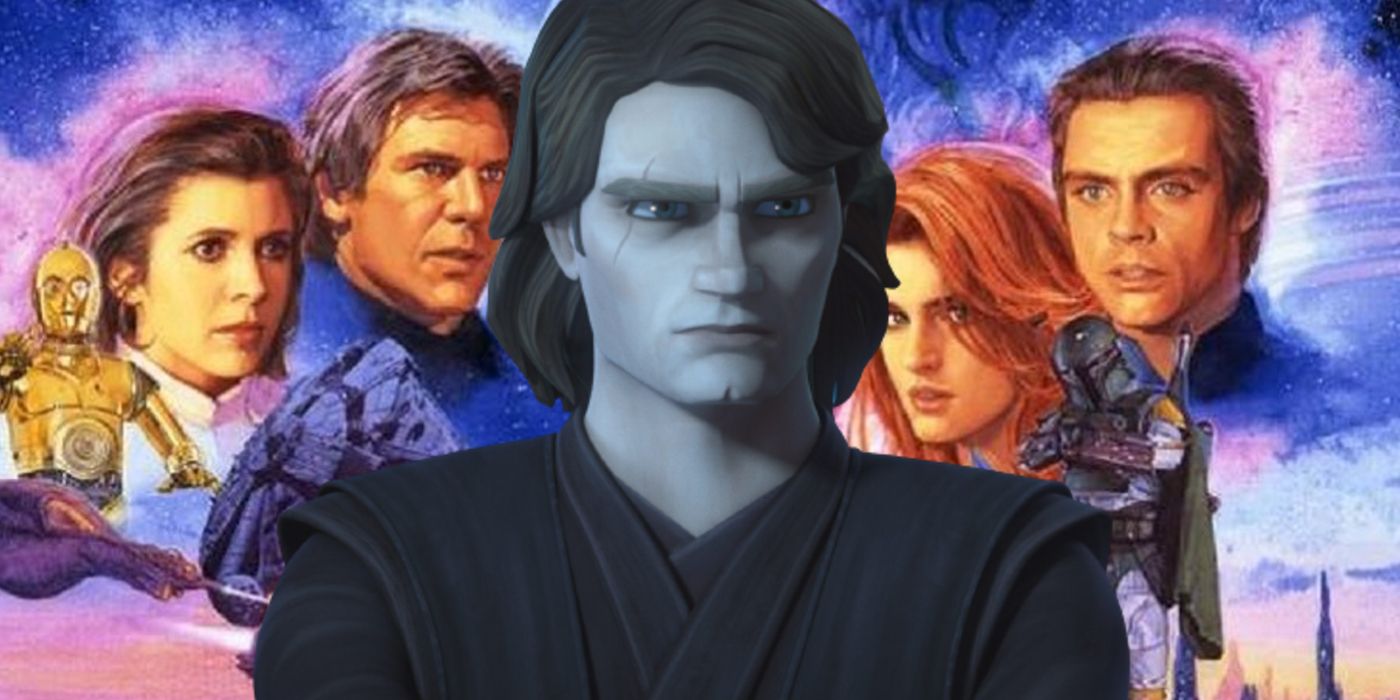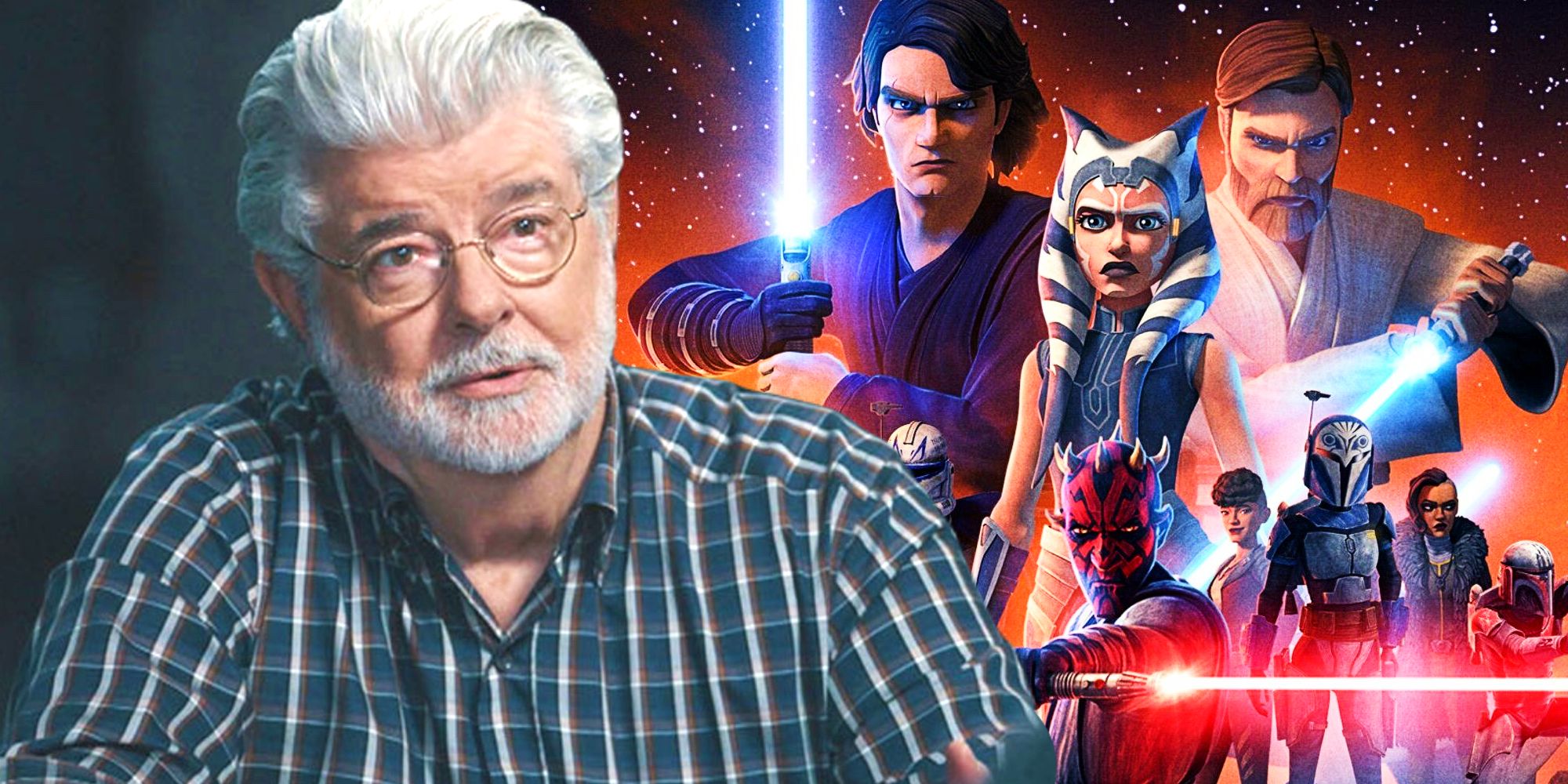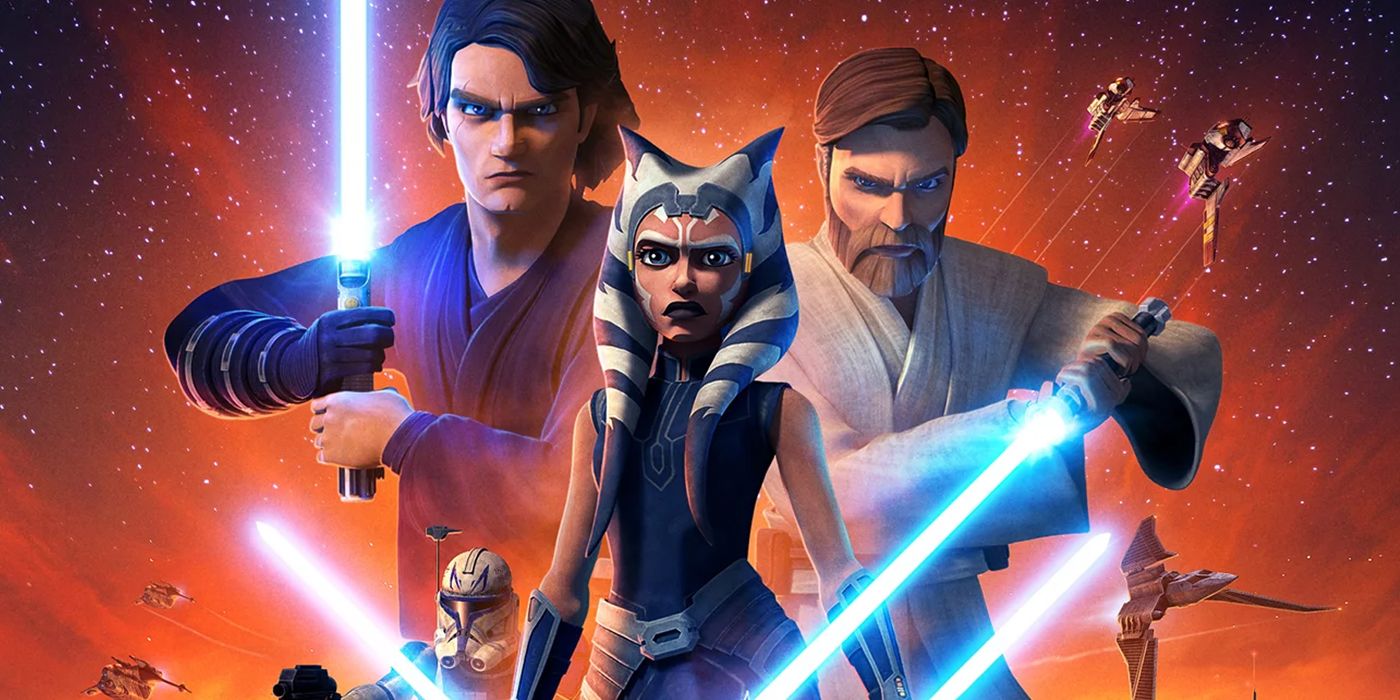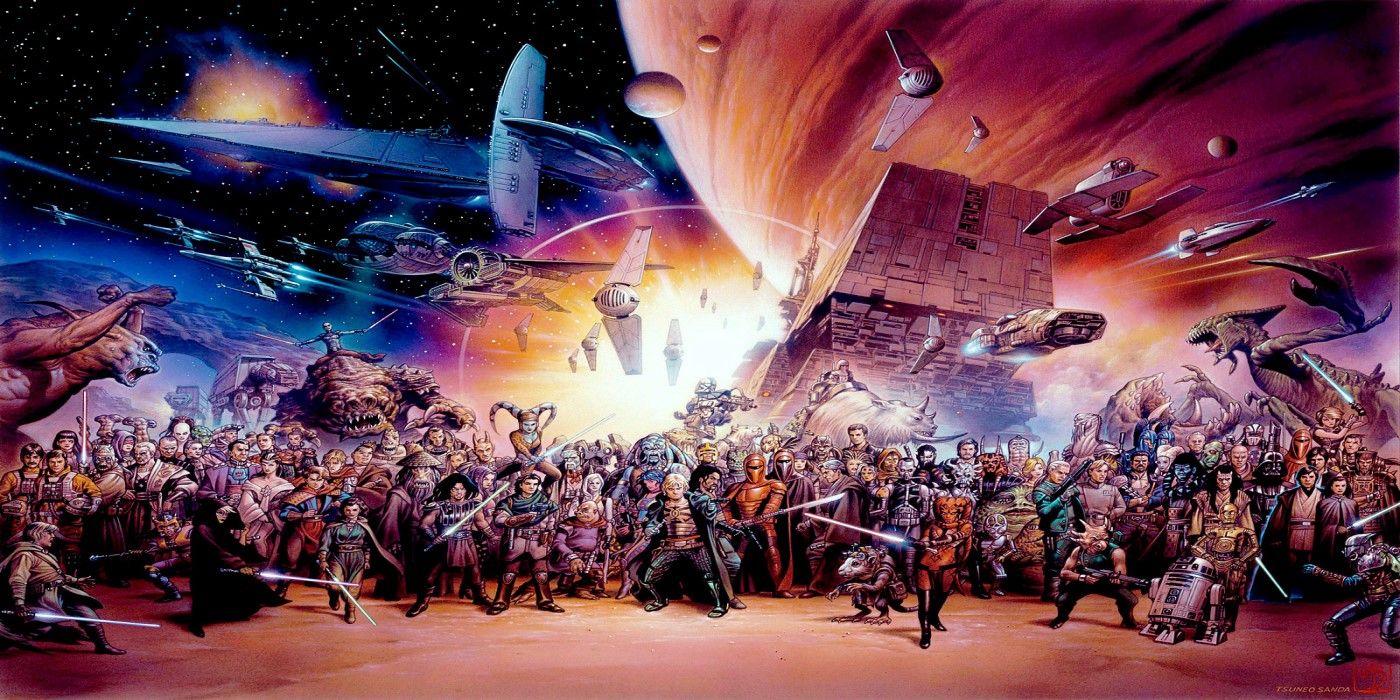
The Untold Story: How George Lucas' Clone Wars Revolutionized Disney's Star Wars Universe

Lucas' Clone Wars: Paving the Path for Disney's Star Wars Canon Discover how George Lucas' groundbreaking approach shaped the future of Star Wars, with Disney following suit The inevitable canon reset is explored, even if Lucas hadn't sold it to Disney
The Star Wars continuity underwent a reset in 2014, with Lucasfilm announcing that the old Expanded Universe, also known as "Legends," was no longer considered canon. However, the starting point of this change can be traced back to George Lucas' Star Wars: The Clone Wars, which premiered in 2008. Star Wars has always been a transmedia franchise, and Lucasfilm had previously taken a "tiered" approach to canon and continuity. The original Star Wars movies directed by George Lucas were considered absolute canon, while the Expanded Universe, consisting of novels, computer and console games, RPGs, comics, and more, was expected to align with it.
However, everything changed in 2014, two years after Disney acquired Lucasfilm. Disney officially declared the Expanded Universe as an alternate continuity called "Legends," which allowed them to have more creative freedom for the Star Wars sequel trilogy. Interestingly, this decision had already been foreshadowed by George Lucas and Dave Filoni's Star Wars: The Clone Wars in 2008, as it set the foundation for this new approach.
George Lucas' Clone Wars Set A New Approach For Canon & Continuity
The Clone Wars era of the Legends continuity was extensively covered from 2002 to 2007 through the Clone Wars multimedia project. This project included various Star Wars: Republic comics, seven novels, and the Star Wars: Clone Wars animated micro series by Genndy Tartakovsky. However, Lucas and Filoni's Star Wars: The Clone Wars contradicted the Clone Wars multimedia project in several ways. The series altered Anakin Skywalker's Jedi Knighthood timeline, introduced his padawan Ahsoka Tano, brought back Darth Maul and Eeth Koth, and made significant changes to characters like Asajj Ventress and Barriss Offee, among other discrepancies.
Due to these numerous changes made to the established Clone Wars era of the Expanded Universe, it became evident that The Clone Wars could not be integrated into the Legends timeline, despite attempts by some Legends properties to reconcile these inconsistencies. In 2012, Dave Filoni addressed this issue in the 134th issue of Star Wars Insider. He clarified that he did not consider The Clone Wars part of the Expanded Universe. As he explained:
The distinction between the Expanded Universe and George Lucas' vision of Star Wars is stark. While the EU is a rich source of ideas, it exists separately from what appears on screen. Despite efforts to reconcile the two, a closer examination reveals that ideas from printed works do not always align with their on-screen counterparts. Although there are some similarities and inspiration can be drawn, the ultimate distinction between the Star Wars films and TV series and the books is clear.
During the production of The Clone Wars, Filoni only considered the saga films as part of the official canon. This explains why numerous contradictions arose, particularly concerning the Mandalorian storyline. Filoni often drew loose inspiration from the Expanded Universe to create his own narrative, seeing it as the primary purpose of having an EU. This approach mirrors the use of Legends in the current canon continuity.
Disney Followed George Lucas' Lead After The Clone Wars
Filoni's attitude towards the Expanded Universe established the framework for Disney's approach. Although Lucas had approved all materials in the original Star Wars Expanded Universe, he influenced numerous changes made in The Clone Wars, such as Darth Maul's survival and the significant reimagining of the Witches of Dathomir. Lucas once conveyed to Filoni that "continuity is for wimps," showcasing his own perspective. Subsequently, Disney followed Lucas' lead, solidifying these changes as official.
It is worth noting that Filoni's tendency to disregard canon printed media in favor of a more flexible adaptation has persisted during the Disney era. For instance, Star Wars: Tales of the Jedi presents a distinct account of Ahsoka's return to the rebellion compared to E.K. Johnston's novel Ahsoka. Additionally, in the first episode of Star Wars: The Bad Batch season 1, viewers were surprised by the depiction of how Kanan Jarrus survived Order 66, a story already explored in comics. Currently serving as the head of Lucasfilm Television and working on a Star Wars movie, Filoni clearly remains unwavering in his approach.
Star Wars' Canon Reset Was Inevitable (Even If Lucas Hadn't Sold It To Disney)
George Lucas' plans for the Star Wars sequel trilogy aligned with his new approach to continuity, completely disregarding established Expanded Universe lore. This disregard included the exclusion of Luke Skywalker's marriage to Mara Jade, a character Lucas did not like. Even if Disney hadn't acquired Lucasfilm, a reset of continuity was inevitable due to the impact of The Clone Wars on the Legends timeline. However, it is unlikely that Lucas would have taken the effort to rebrand the Expanded Universe as Legends, leaving behind a messy continuity for viewers and Lucasfilm creatives to handle.
Currently, the Expanded Universe presents a relatively coherent and organized timeline, except for the effects of The Clone Wars. The Legends rebranding, though frustrating for longtime Star Wars viewers, confirms that the previous timeline was once the official Star Wars canon and prevents it from being even more confusing if Lucas had remained in control of Lucasfilm and produced the Star Wars sequel trilogy. On the other hand, Star Wars: The Clone Wars should be considered as the first exclusive property of Disney's new continuity, as it was never intended to be part of the Legends timeline.
















